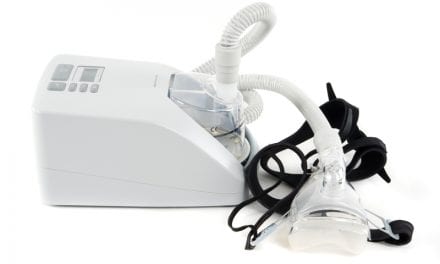
The American Board of Sleep Medicine (ABSM) recently announced the development of a new sleep technologist certification exam. Some of the motivation initially presented for development of the exam raised eyebrows in the sleep medicine community. The motivation appeared, in part, to stem from comments about the inability of the RPSGT credential to ensure professional readiness and the failure of the RPSGT exam to test for knowledge needed to perform sleep studies. In order to find out what sleep professionals thought about the RPSGT credential, Sleep Review and the Atlanta School of Sleep Medicine and Technology conducted a survey of the sleep medicine community.
BACKGROUND
The ABSM announced in late December that it was planning to develop a new sleep technologist certification examination. In a letter to Janice East, RPSGT, R. EEG T., president of the Board of Registered Polysomnographic Technologists (BRPT), Nathaniel F. Watson, MD, president of the ABSM, said the motivation for creating the new exam came in response to concerns raised by sleep physicians who serve as medical directors of sleep centers that “certification by the BRPT does not ensure professional readiness, which results in increased costs and time to train technologists whose credentials should indicate otherwise.” In addition, the letter said these same physicians have expressed “concern that the BRPT examination does not test the basic knowledge necessary to perform sleep studies.”
Later, Watson clarified the reasons for the exam, stating, “Our goal is to offer a certification examination to sleep technologists based on a blueprint reflective of the day-to-day professional responsibilities of sleep technologists in the sleep center setting and instruction received from available didactic programs. We believe this methodology fairly and responsibly evaluates professional competence. Above all, our goal is to safeguard the future of sleep technology as an independent profession within allied healthcare and to protect the professional livelihood of sleep technologists.”
To better understand how sleep techs, both RPSGT credentialed and non-RPSGT credentialed, and physicians working in the field felt about the current credentialing pathway and professional readiness of RPSGT techs, the Atlanta School of Sleep Medicine and Technology partnered with Sleep Review to conduct a survey of the Sleep Review readership as well as recent attendees of the Atlanta School’s courses to see what they thought about these issues. In April, potential respondents were contacted through direct e-mail or electronic newsletter to participate in the survey. In all, 725 respondents participated.
THE SURVEY
The vast majority of respondents were technologists with the RPSGT credential (77%) working in a sleep lab/center accredited by AASM or The Joint Commission (72% of all respondents). In addition, most respondents reported 11 to 20 years of experience in the field of sleep medicine/technology (32%), with an additional 14% reporting more than 20 years of experience. The majority of RPSGTs who responded to the survey reported serving as senior technologist (38%) or administrative manager/director (35%). A reported 73% of the non-RPSGT sleep techs participating in the survey best described their job title as “staff tech.” The physician response rate was low with participation from 30 physicians board-certified in sleep medicine and 11 physicians who are not boarded in sleep medicine.
THE TEST
When asked about the current RPSGT credentialing examination, 33% of RPSGT respondents agreed, while an additional 37% strongly agreed, that the exam tests relevant knowledge and skills related to tasks in the sleep center/lab. The majority of non-RPSGT sleep techs (27%) agreed as well. In addition, the majority (35%) of physicians board-certified in sleep medicine who took part in the survey also agreed that the current exam tested for relevant knowledge and skills related to tasks in the sleep center/lab.

The survey further found that the majority of RPSGT sleep techs and board-certified physicians either agreed or strongly agreed that the RPSGT exam tested for knowledge necessary for conducting sleep studies (68% and 65%, respectively). Meanwhile, the majority of non-RPSGT sleep techs participating in the survey were split fairly evenly, either agreeing with that statement (25%) or claiming to be neutral (26%). In terms of scoring sleep studies, the majority of board-certified physicians (62%) and RPSGTs (62%) agreed or strongly agreed that the RPSGT exam tested for knowledge necessary to complete such tasks. While the majority of non-RPSGT sleep techs agreed (32%) that the exam tested for such knowledge, an additional 18% were neutral in their agreement.
ON THE JOB
In terms of the RPSGT credential once on the job, 59% of physicians board-certified in sleep medicine believe the credential ensures an RPSGT’s professional readiness. RPSGTs were equal to board-certified sleep physicians in their response. Among RPSGTs, 59% agreed or strongly agreed that the credential ensures professional readiness. The majority of non-RPSGTs, however, were neutral with regard to this statement (25%). Still, 17% of non-RPSGTs agreed and 16% strongly agreed that the RPSGT credential ensured a technologist’s professional readiness.
Predictably, the vast majority of RPSGTs strongly agreed (45%) that a newly hired RPSGT tech is better prepared for the job than a noncredentialed new hire, while the majority of non-RPSGTs disagreed (21%) or strongly disagreed (25%) with this statement. The majority of physicians board-certified in sleep medicine, however, agreed (43%) with RPSGTs that a newly hired credentialed tech is better prepared than their noncredentialed counterpart. By extension, both RPSGTs and board-certified physicians stated that the RPSGT credential goes a long way in reducing the training time needed for a new RPSGT in the sleep center/lab—57% of physicians and 70% of RPSGTs agreed or strongly agreed. While 13% of non-RPSGT techs conceded that the training time for an RPSGT-credentialed technologist is shorter, the majority of these respondents agreed (25%) or were neutral (21%) with regard to this statement.
Across the board, the survey found that the majority of RPSGTs (81%), board-certified physicians (75%), and non-RPSGTs (62%) agreed or strongly agreed that techs with the RPSGT credential were qualified to conduct sleep studies—a skill area that all the respondents, across professions, ranked among the most important for technologists to master. And while the majority of both RPSGTs (32%) and non-RPSGTs (34%) strongly agreed that techs with the credential are qualified to score the sleep studies, board-certified physician respondents were slightly more neutral (37%).

CONCLUSION
Overall, the survey shows that the RPSGT is a highly valued credential. The credential has become a requirement in a number of health care settings because of AASM accreditation and Medicare reimbursement requirements, as well as its perceived reputation for connoting a commitment to professionalism. Among all respondents, 75% say they require the RPSGT credential at their facility. The credentialing pathway is already complex—an additional exam might make the process more murky. Only the marketplace can tell us if a new credential for technologists is needed.
Russell Rosenberg, PhD, DABSM, is director of the Atlanta School of Sleep Medicine and Technology, Atlanta. The author can be reached at [email protected].



